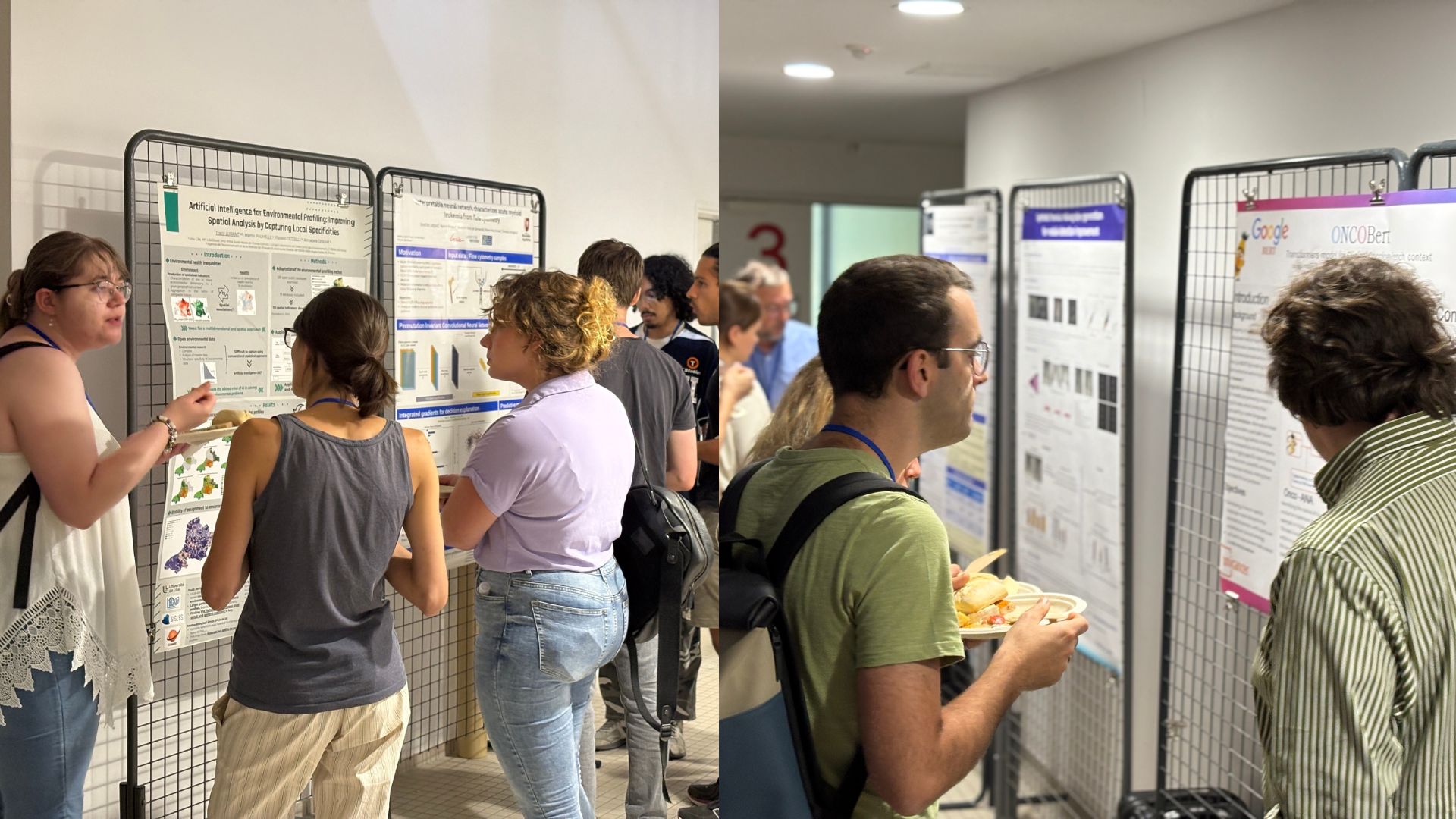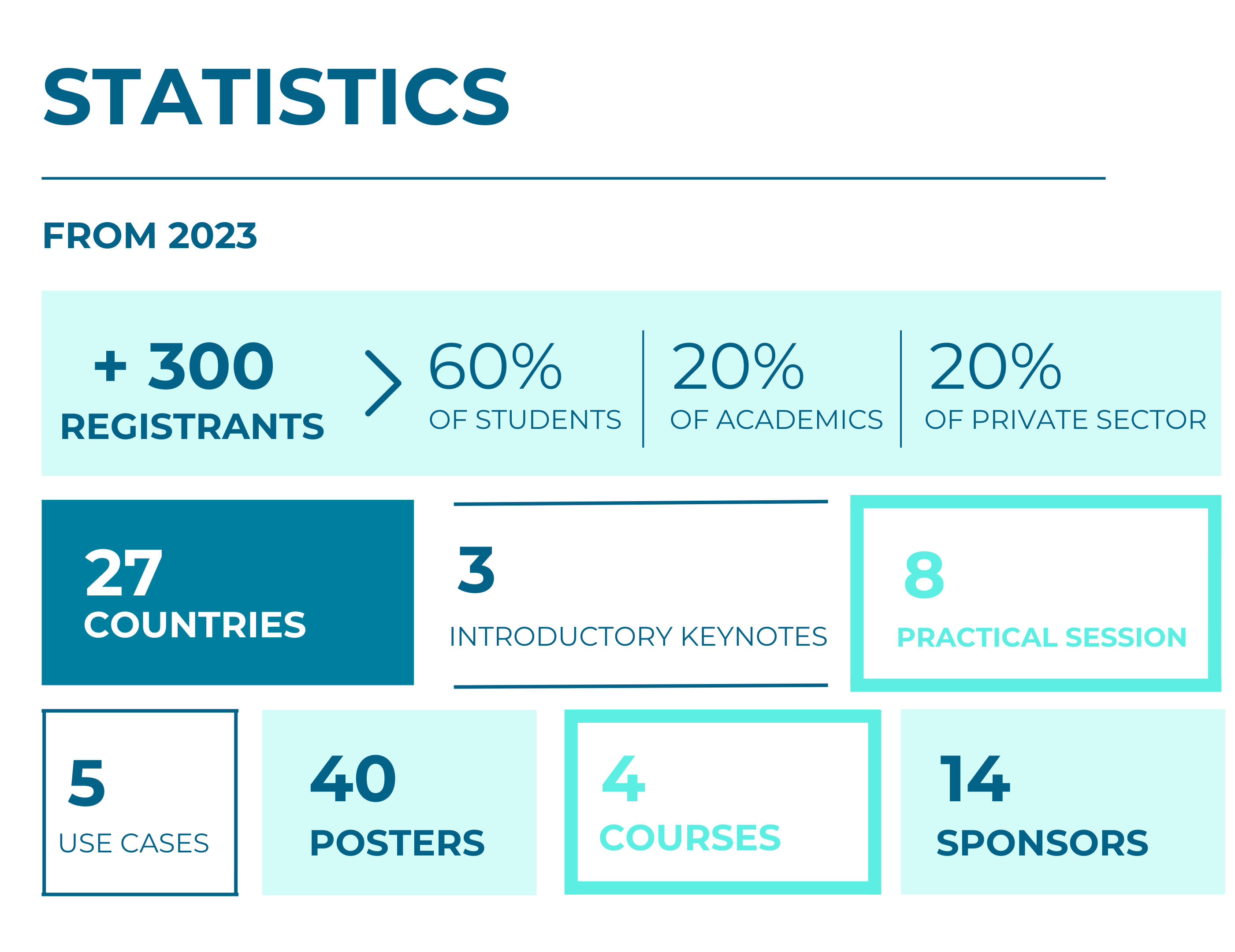Past editions
2025 edition
Highlights from the 2025 edition of the AI4Health Summer School
From June 30 to July 3, 2025, over 300 participants took part in the “AI4Health” Summer School, co-organized by the Health Data Hub and the PR[AI]RIE-PSAI Institute. This fourth edition brought together around forty internationally renowned speakers and industry experts to explore the latest advances in AI for healthcare.
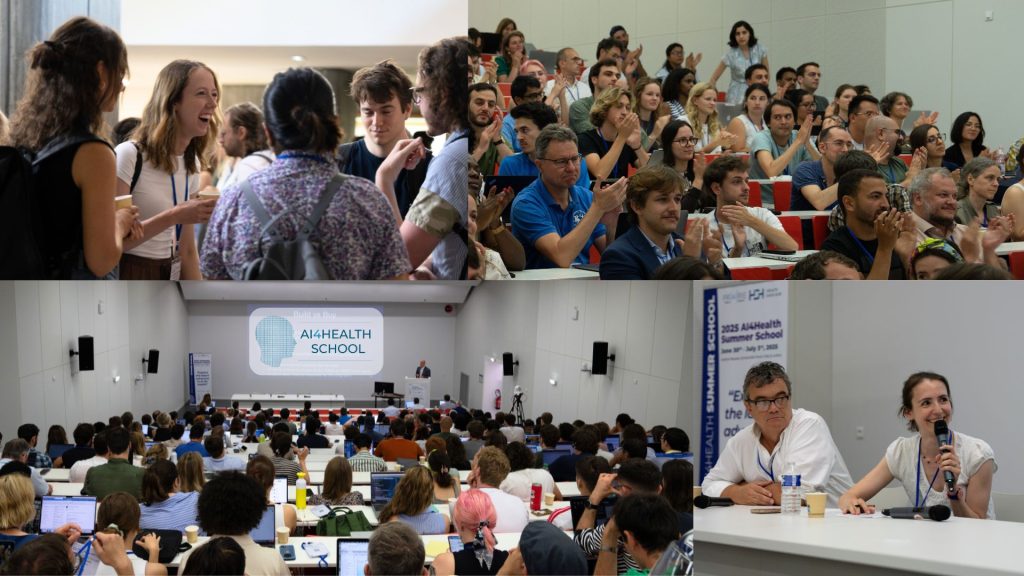
This year’s international AI4Health Summer School welcomed more than 300 participants, both on-site and online, from 13 countries. Organized in partnership with Université PSL, Université Paris Cité, and PariSanté Campus, the summer school was held at the Necker Institute, with the opening day also live-streamed online. Over four days, 43 speakers led lectures and workshops, giving attendees the opportunity to engage with experts and gain hands-on experience with AI techniques applied to real-world challenges in healthcare.
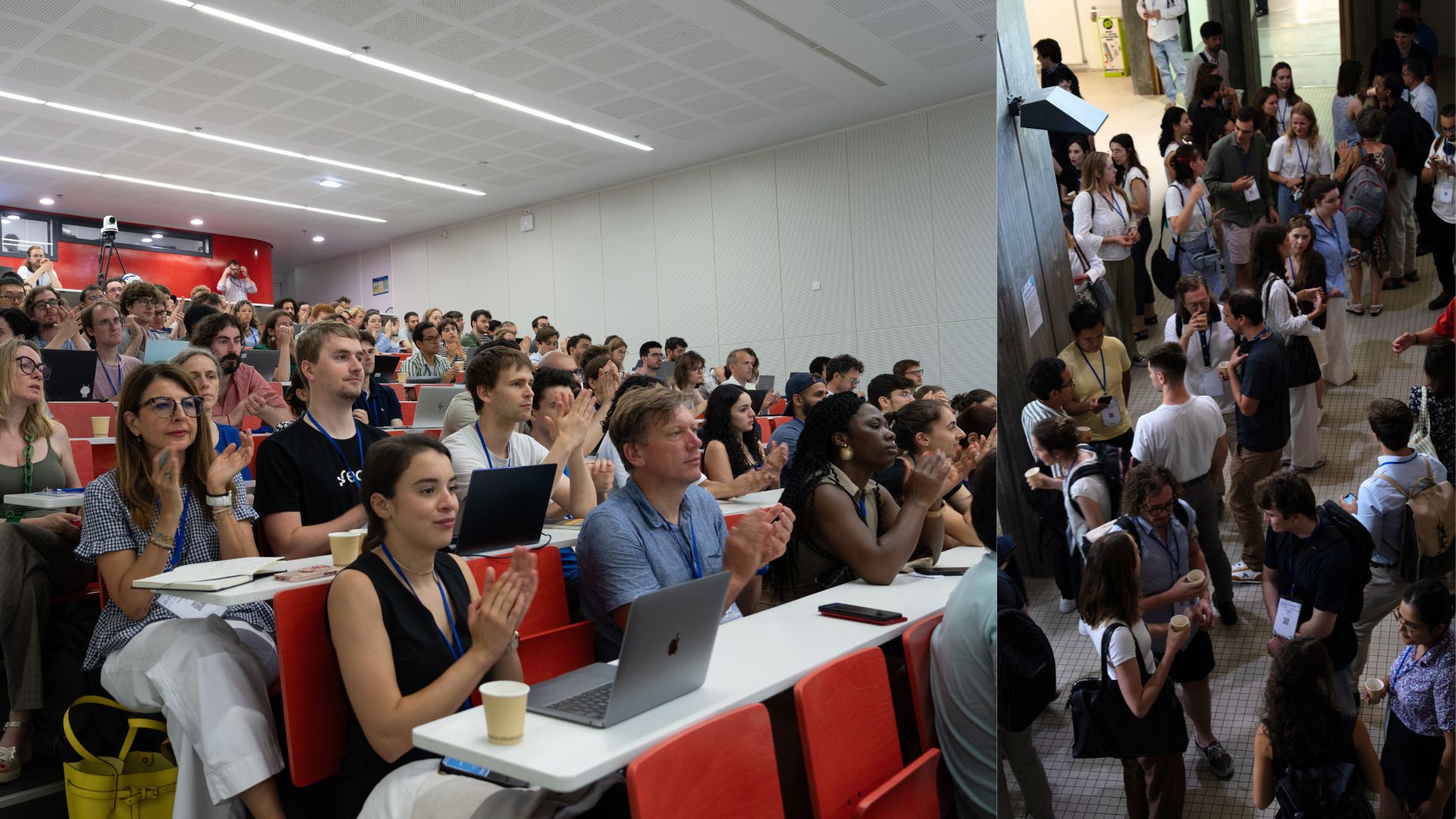
A Day of Open Conferences on AI in Healthcare
On June 30, 2025, the Summer School opened with a day of plenary sessions, accessible both in-person and online. The day featured inspiring talks and dynamic themed panel discussions, bringing together high-level speakers. Among them were professors from prestigious institutions (Institut Curie, Inria, MIT, Technion, TU Dresden), representatives from internationally renowned hospitals known for their innovation (AP-HP, Charité, Cleveland Clinic, Karolinska University Hospital, Mayo Clinic, Sheba Medical Center), and experts in primary care and digital health (CPRD, Doctolib, Implicity, Nabla, P4DP).
These discussions enabled a wide audience—including academics, healthcare professionals, industry players, startups, and public institutions—to gain a better understanding of the latest developments in AI for healthcare and the challenges of its implementation, particularly in hospitals and companies, through the presentation of concrete use cases.
Discover the speakers
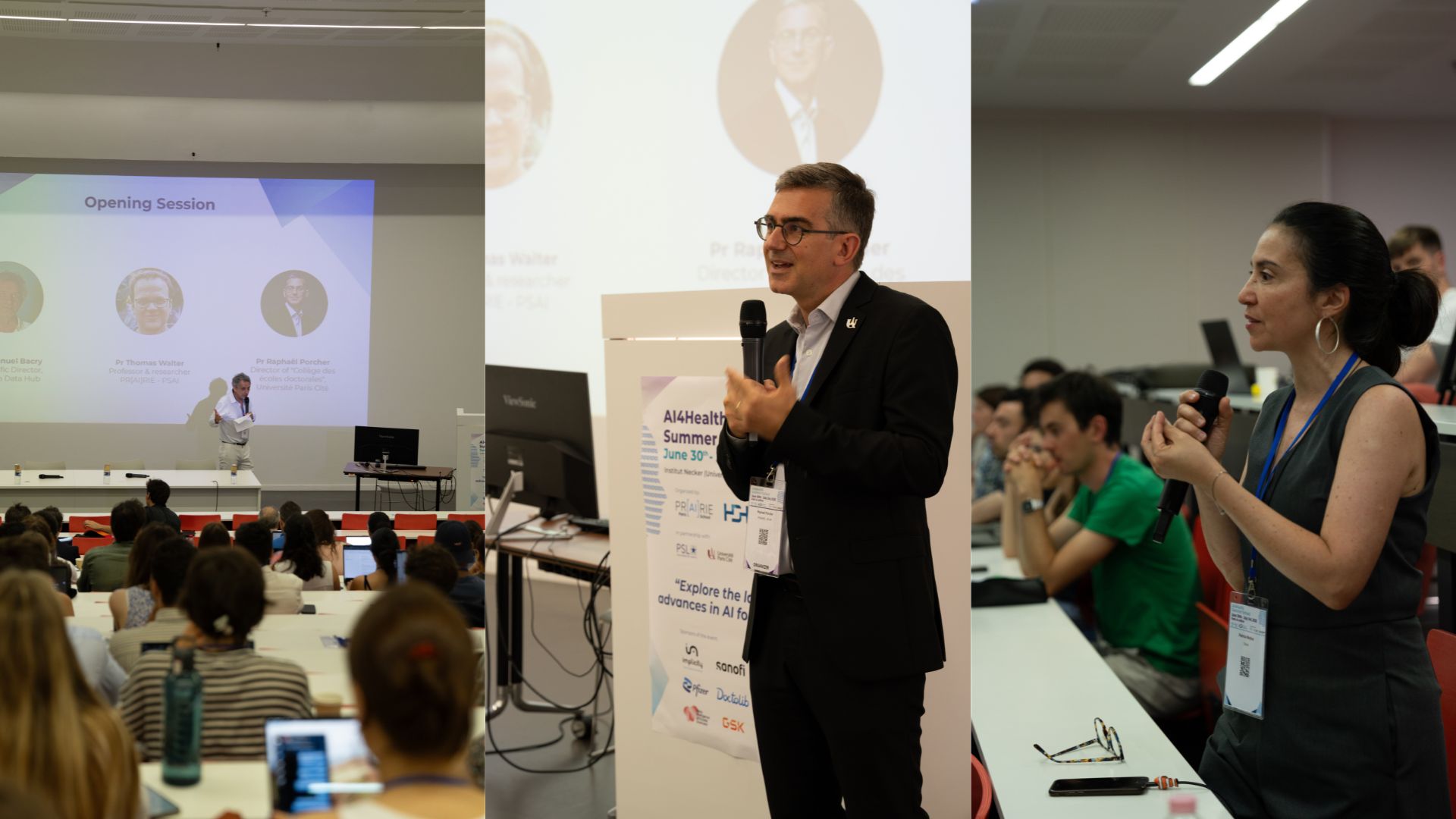
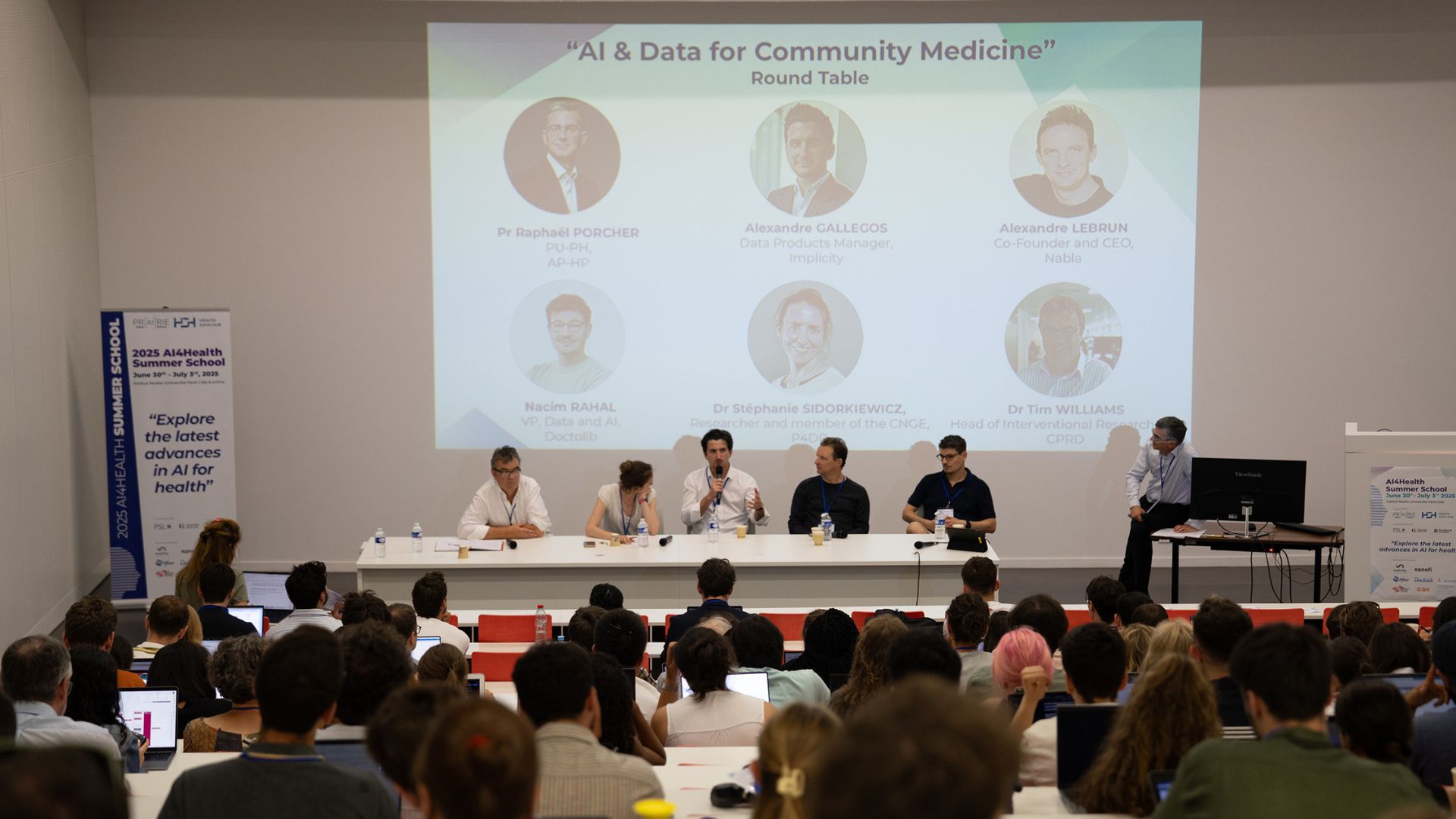
Three days of scientific courses and hands-on sessions
Following the opening day, the next three days were held exclusively on-site and targeted students, PhD candidates, researchers, and representatives from the private sector. Mornings featured plenary lectures by six leading professors, while afternoons offered interactive workshopsin small groups led by their teams, an opportunity for participants to dive into real-world applications of the topics covered.
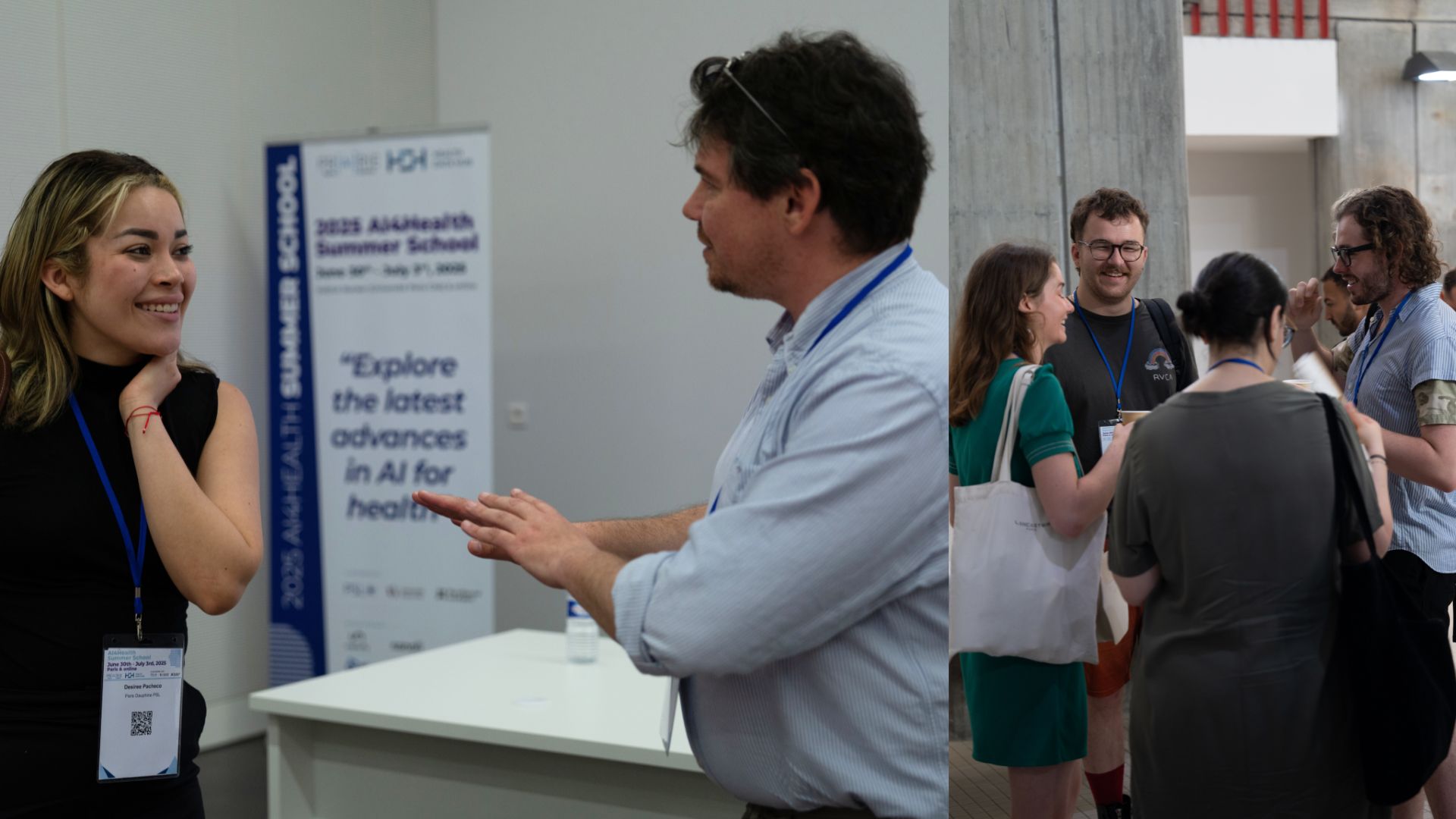
Poster session : two innovative projects honored
During these final three days, around forty students had the opportunity to present their research in the form of scientific posters. Following dedicated presentation sessions, the AI4Health scientific committee recognized two particularly outstanding contributions for their originality, innovation, and scientific rigor.
The first prize was awarded to Fredrik Olofsson from Leiden University (Netherlands) for his poster entitled “Improving early detection of PANcreatic cancer in High-risk individuals through Artificial Intelligence methods.” Conducted as part of the PAN-HI-AI initiative, the project aims to improve early detection of pancreatic cancer in high-risk individuals using AI applied to longitudinal imaging data.
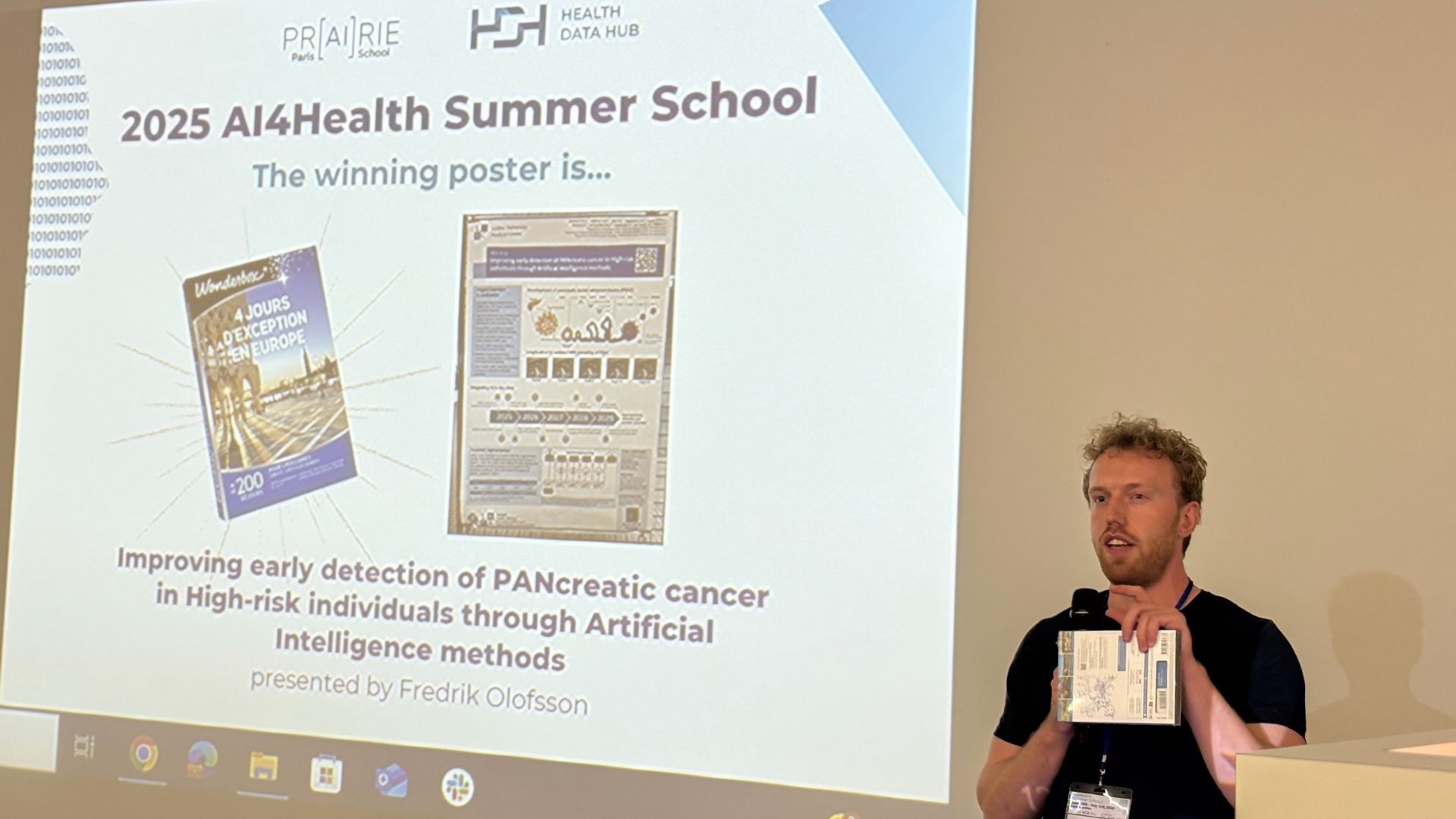
The second prize went to Gernot Pucher from Essen University (Germany) for his poster “Evaluation of Foundation Models for Time Series Forecasting across Clinical Medicine,” which explores the use of AI models to forecast clinical data trends in various medical contexts.
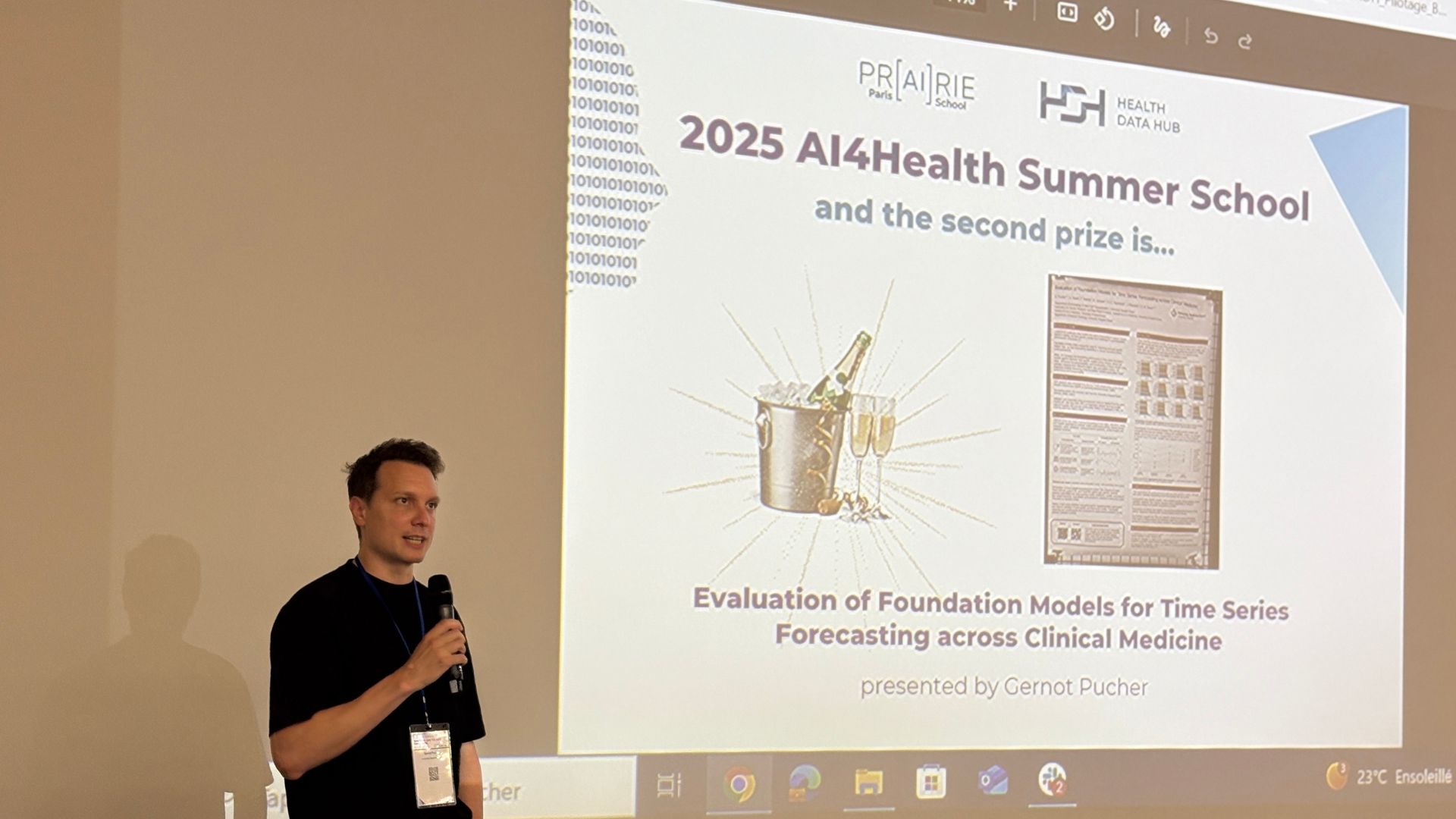
The organizers of the AI4Health Summer School warmly thank all participants, speakers, partners, and sponsors who contributed to the success of this event, which has become a key event in the AI for healthcare ecosystem.
See you in 2027 for the next edition!

2023 edition
Discover the 2023 speakers

Alessandro Blasimme (Switzerland)
“Artificial intelligence in medicine: an ethical perspective”

Tobias Gauss (France)
“Machine learning in the triage of major trauma, the Traumatrix project”

Anna Goldenberg (Canada)
“AI for healthcare time series”

Bjoern Menze (Switzerland)
“Deep learning for medical image data – from images to structures to graphs”

Sébastien Ourselin (UK)
“Learning across 16M patients: platforms and applications in acute care”
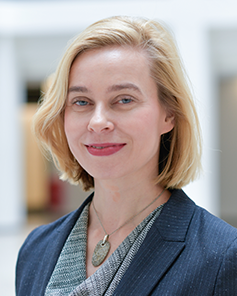
Petra Ritter (Germany)
“How complex simulations augment artificial intelligence”
Arnaud Rosier (France)
“Implicity: how an AI concept becomes an approved medical device used daily by healthcare professionals”

Andrzej Rys (Belgium)
“Digital health: policy and regulatory landscape in the European Union and globally”

Uri Shalit (Israel)
“The basics of causal inference for health applications”

Mihaela Van der Schaar (UK)
“The future of personalized medicine and its implications on the healthcare systems: A machine learning perspective”

Serena Villata (France)
“Clinical Text Analysis: Methods and Applications”
Statistics from 2023
